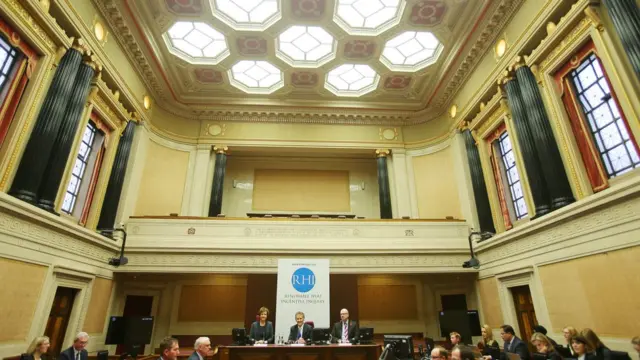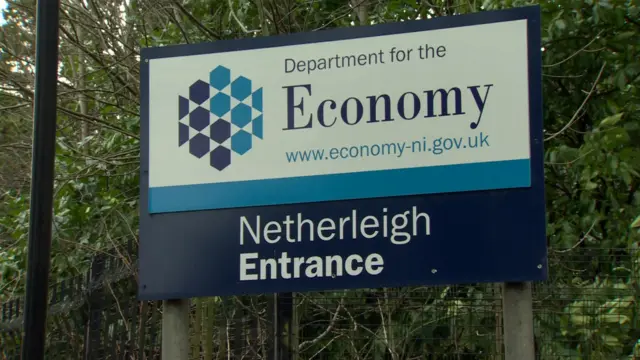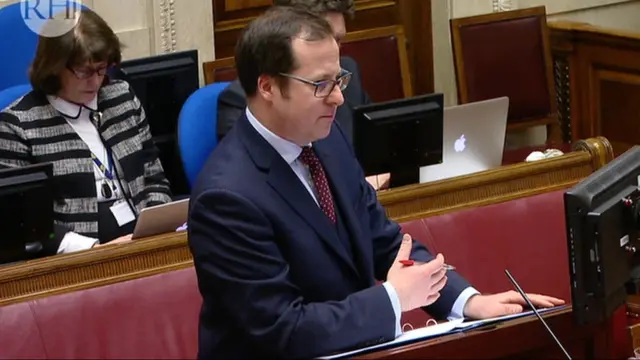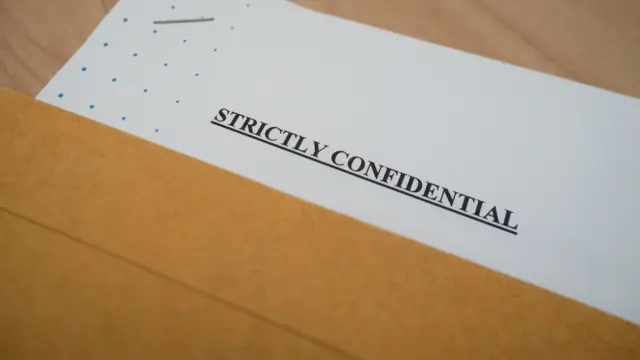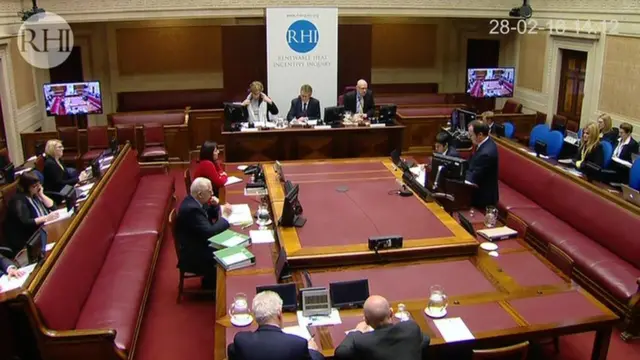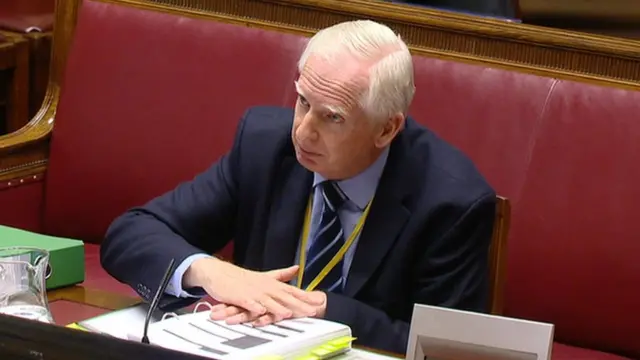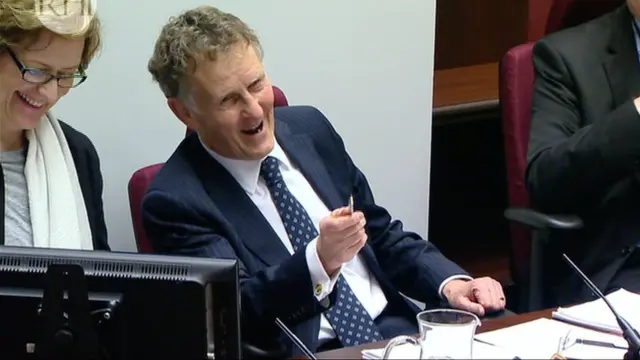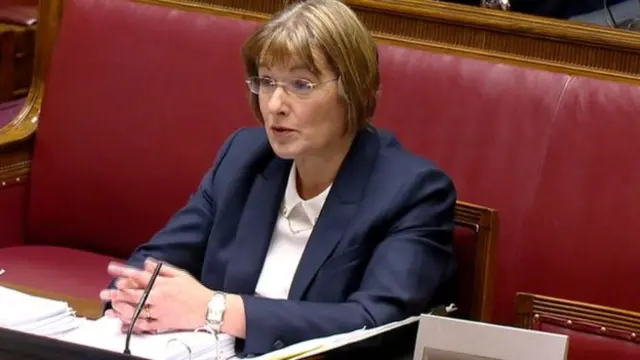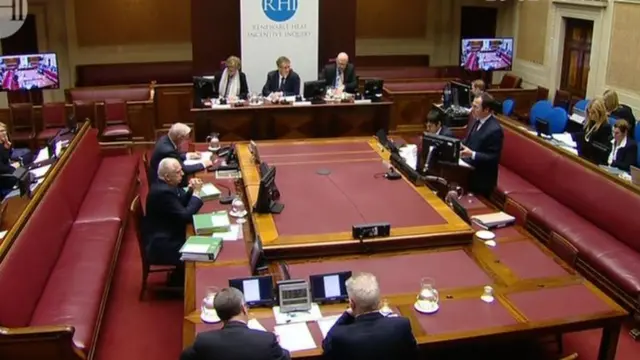That's all for today...published at 17:06 GMT 28 February 2018
Despite his best efforts, Mr Lunny has run out of road - it's knocking-off time and he still has a good hour's worth of questions to get through.
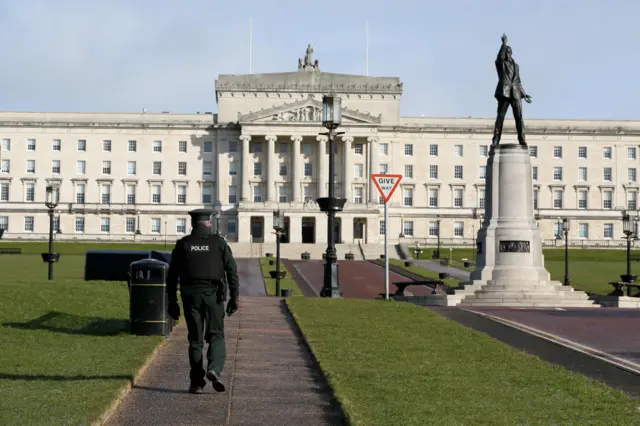 Image source, AFP
Image source, AFPSir Patrick must be in a forgiving mood as he agrees to an extra session on Friday afternoon to bring Mr Thomson's evidence to an end.
The much-feared snowstorm - the so-called Beast from the East - has yet to hit Stormont, so we'll be back at 09:45 tomorrow if it spares us... join us then.

